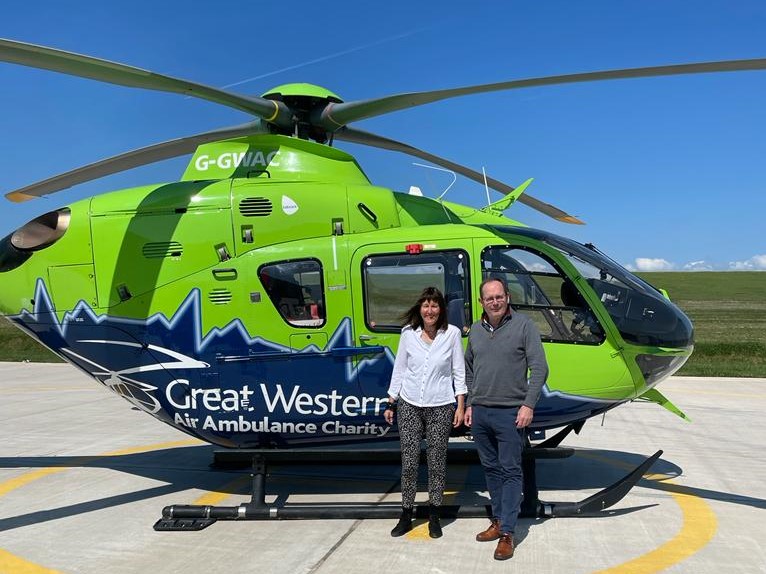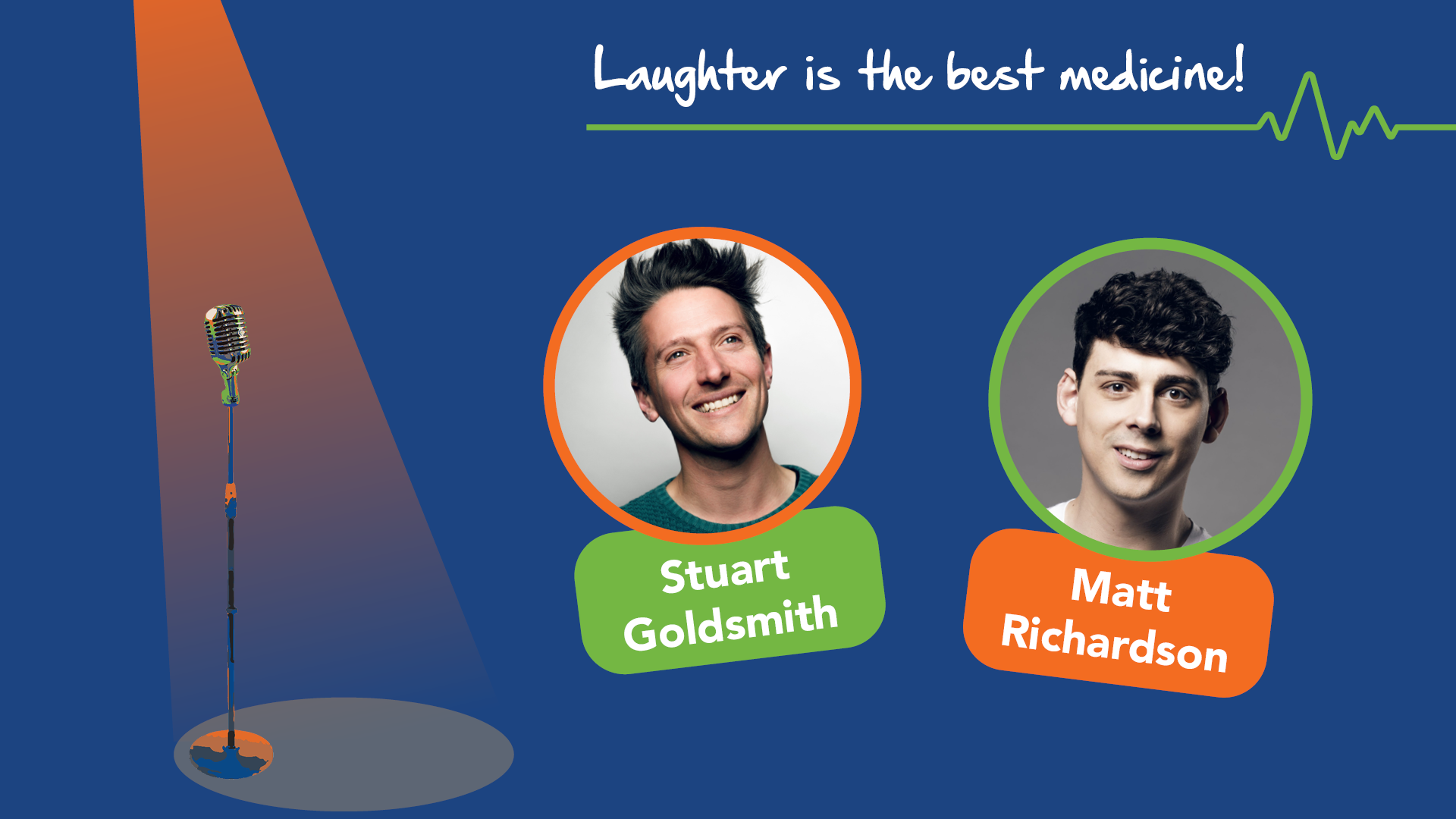
Heli Laughs 22 lineup
November 4, 2022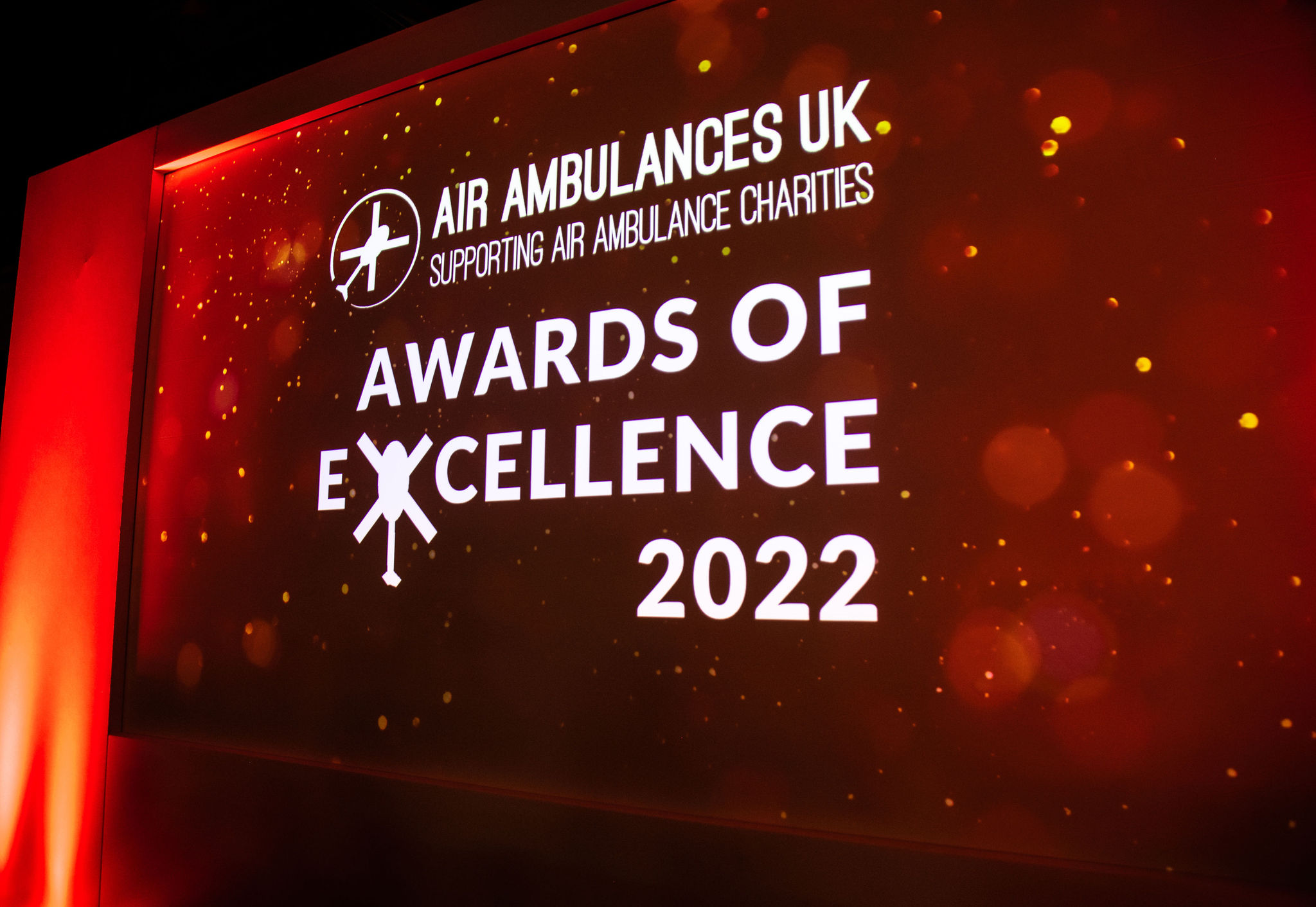
Triple award success for GWAAC
November 18, 2022Lisa, from North Somerset, was a busy teacher in an inner-city Bristol school. She loved teaching and she never sat still, making the most of anything life threw at her. Sadly, on 6 February 2019, life threw her a curveball, and she required the immediate help of Great Western Air Ambulance Charity (GWAAC).
Coffee one minute, a major trauma centre the next
On a well-earned day off from work, Lisa met a friend for a coffee and a bite to eat in Bristol’s Broadmead. Afterward, she planned to grab a couple of things from the shops and get picked up by her husband.
But Lisa remembers nothing of that day after the coffee. En route to the shops, she was hit by a car when it pulled out of a junction near Cabot Circus.
Right there and then, Lisa’s life had changed.
It could happen to anyone
The first thing that husband Jon knew about the accident was when the Police arrived at his home. Jon said: “I hear sirens all the time from our house, but I just had a sinking feeling because I hadn’t been able to get hold of Lisa since lunchtime.”
Lisa has no recollection of the accident. She has no flashbacks, nothing. Instead, she has relied solely on information from other people; she found out, for example, that GWAAC Specialist Paramedics in Critical Care, James Yates and Matt Robinson, attended her that day, along with Critical Care Doctor, James Tooley.
Lisa says: “James and Matt saved my life in terms of the physical care they provided.” She also recognises that it was a team effort: “From the road ambulance to the police, right down to the witness who rang 999, everyone had a role to play in saving my life that day.”
Helping Lisa at the roadside
SPCC’s James and Matt reached Lisa in a critical care car within 15 minutes of the accident happening. Within another 15 minutes, they had assessed her, made a plan and left the scene for Southmead Hospital, one of the region’s major trauma centres. Lisa had sustained a broken tibia and fibula and a closed head injury.
Within 45 minutes of the accident, Lisa had been transported to the major trauma centre in a road ambulance with James and Matt at her side providing a clinical escort. On arrival, she was handed over to the trauma team who had been pre-alerted by the GWAAC crew.
“At the time of assessing Lisa on scene, her Glasgow Coma Score was 13 (out of 15). That means she wasn't fully conscious but her head injury at that point wasn't causing significant compromise. She didn't appear to have any significant blood loss, her airway was OK, and she was breathing well. All those factors put together, plus the fact it was only a short drive to Southmead, meant that we didn't anaesthetise Lisa on scene. However, her level of consciousness continued to deteriorate during the short journey, so she did get put to sleep on arrival at Southmead to facilitate the next steps in her management.”
James Yates, SPCC, GWAAC
This course of action highlights that it's not just about the advanced skills that the GWAAC Critical Care Team brings to the scene. The team’s close working relationship with the major trauma centre plus their advanced clinical decision-making was what really made the difference and allowed them to provide the best possible care for Lisa.
Fight or flight – the mental toll
Getting better was a slow process for Lisa. The frustration built up as she underwent lots of physio and rehabilitation for her leg. For the first few months, Jon didn’t leave Lisa’s side. It took six months for Lisa to walk any more than a short distance.
But the leg injuries that caused her physical difficulties turned out to be the easiest to deal with; it was the two bleeds on her brain that caused the most problems.
Lisa says she suffered no real pain or headaches from her head injury; the most noticeable thing was a few dizzy spells; certainly not enough to stop a very active and determined teacher from getting back to work.
“How did I deal with it? I dealt with it by telling myself it was just a little knock on the head.”
Lisa, Road Traffic Collision survivor
In her determination to get back to normality, Lisa was fighting her own brain which was busy trying to fix itself after the trauma sustained.
She finally realised she was losing her fight to get back to normal quickly when Rachel, a colleague at work, told her what was really happening: “You think you’re chatting away as normal in the staff room but when you walk out the door, we all turn to each other and say, “that’s not Lisa!”
Lisa had to resign from work. It was hard to accept. She loved her job.
The way back
Lisa had considered counselling but found that a more direct and factual approach from those around her, worked the best. A turning point was when Jon said to her one day: “You’re sitting next to me here; you’re alive, so now you’ve got a choice — you either get on with it or you don’t.”
And when her Diabetic Neuro Psychologist told her that her blood sugars were very low (Lisa had been trying hard to keep good diabetic control to speed up her recovery) she realised that taking time out of work would mean she was in a better position to really look after herself.
Coming to terms
Thankfully, there is no lasting damage from her head injury. But it was, “hell to go through at the time,” and Lisa remembers “feeling lost” when work was suddenly taken away.
One thing Lisa really wanted to do was to visit the GWAAC team who helped save her life and say thank you.
On 26 February 2022, just over three years after her accident, Lisa and Jon came to the GWAAC airbase.
Lisa said the visit was a “significant moment” when she was able to speak with SPCC, James, learn more about that day, and say thank you.
“It was fantastic to see Lisa again and to hear how she’s been since her accident. It was lovely to find out that she’d had such a good recovery after sustaining some pretty serious injuries from the incident. It really is wonderful to meet our patients again and to hear their stories and find out the impact that our care has had on their journey to recovery.”
James Yates, SPCC, GWAAC
The future looks bright
Lisa says the accident has made her a better person in many ways: “I’ve had the chance to re-evaluate my life and what is important. I feel like I’m a richer person for it, but it’s been a tricky journey to get here.”
She is proud of herself for getting through that difficult time and learning to deal with limitations, frustrations and disappointment in new ways. ”The anxiety still kicks in,” says Lisa, “but I’ve learned to manage that too. I still have some learning to do.”
For others going through a similar experience, Lisa has this message: “You can live after an incident like this. You can get a new normal again.”
Lisa’s “new normal” has taken some adjusting, but she is looking forward to volunteering for GWAAC as a way of giving something back.
Help GWAAC to help you
If Lisa could ask people to do one thing, it would be, “to find out more about your local air ambulance charity – there is so much more to it than you know. Don’t wait for something to happen, find out now and tell ten other people to do the same…The Great Western Air Ambulance Charity was a fundamental part of the team of people who helped save my life that day. We should all be ensuring that money gets to where it is needed, to help them continue helping people like me.”
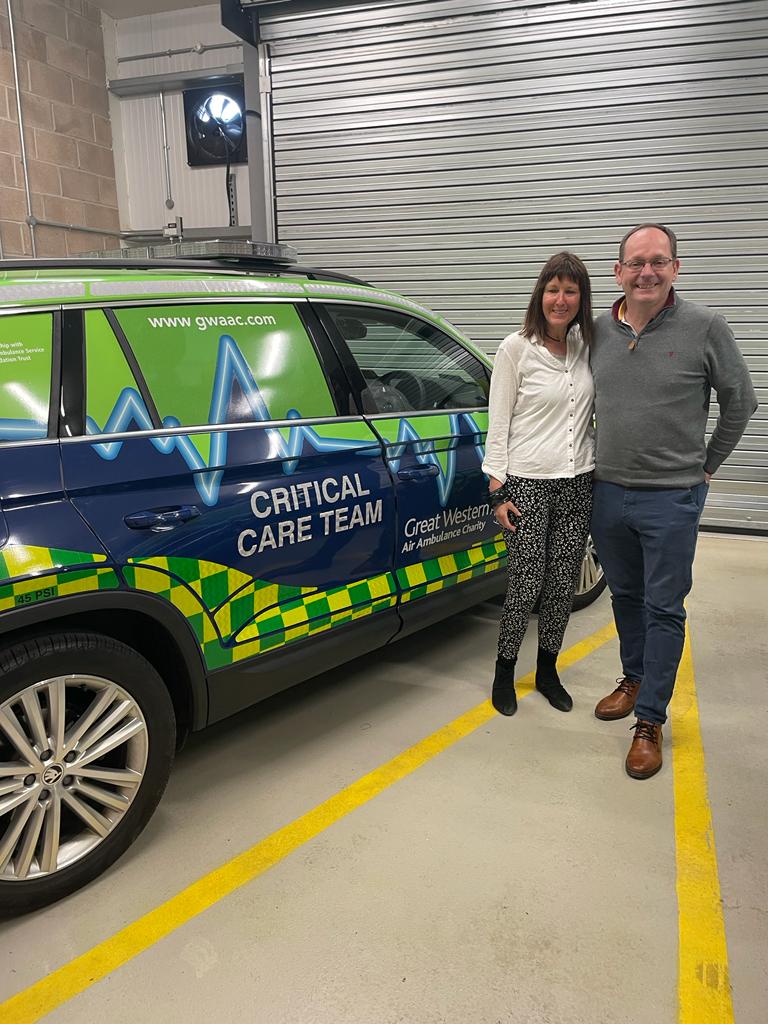
Lisa and her husband with one of our critical care cars
James and Matt saved my life in terms of the physical care they provided.
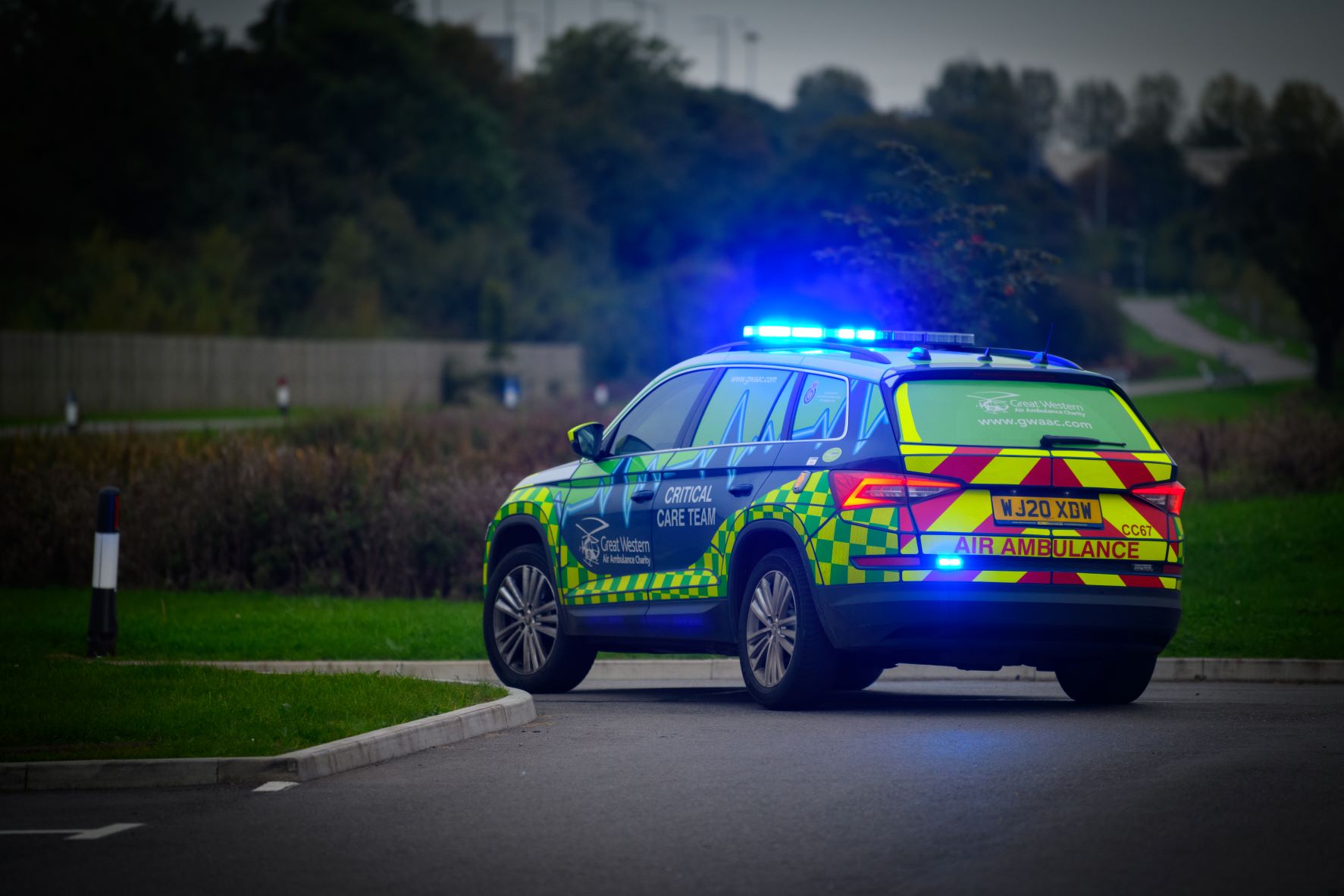
One of our critical care cars leaving our base
It was lovely to find out that she’d had such a good recovery after sustaining some pretty serious injuries from the incident. It really is wonderful to meet our patients again and to hear their stories and find out the impact that our care has had on their journey to recovery.
